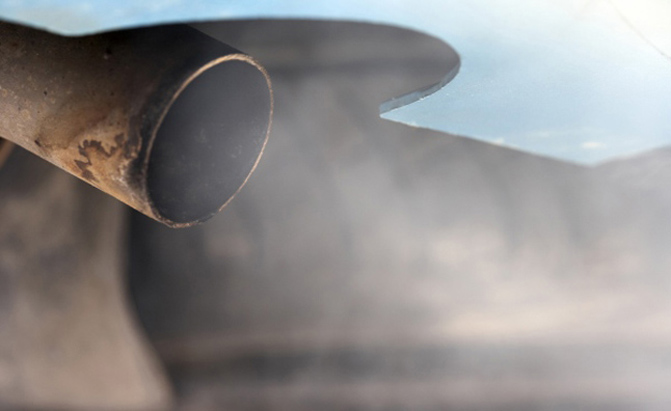Over the weekend, we reported that German automakers funded research where monkeys were exposed to diesel exhaust fumes from an emissions-cheating VW Beetle. Volkswagen Group, Daimler, and BMW all condemned the study — claiming to be appalled by the logistics employed for research they were funding.
Apparently, the situation is a little darker than originally reported. In addition to conducting tests with 10 monkeys, the group hired by automakers to prove the worth of diesel was also testing on human beings. The European Research Group on Environment and Health in the Transport Sector (EUGT) had 25 people inhaling diesel exhaust at a clinic used by the University of Aachen in 2016.
On Monday, German newspaper expanded on EUGT’s unsavory research practices — claiming it not only exposed animals to exhaust gasses but people as well. The German government is up in arms over the revelation. “These tests on monkeys or even humans cannot be justified ethically in any way,” said Chancellor Angela Merkel’s spokesman, Steffen Seibert, on her behalf.
Social Democrat Stephan Weil, who also happens to be a VW supervisory board member, called the testing “absurd and abhorrent … Lobbying can be no excuse whatsoever for such testing.”
ALSO SEE: VW Got Some Monkeys to Watch Cartoons and Huff Diesel Because Science
Unlike the exhaust testing on monkeys, specific details on the human experiment are quite a bit lighter. While subjects were exposed to the irritant gas nitrogen dioxide (which is prevalent in diesel fumes), exactly how remains unspecified. The 25 subjects are believed to all have been young adults in good health and were exposed to various concentrations of the gas for several hours at a time at a facility run by Aachen University.
Automakers are, once again, in the position of having to explain the matter. Daimler condemned the research, saying it had no say in establishing how EUGT conducted itself. “We are appalled by the extent of the studies and their implementation,” a spokesperson said. Daimler previously mentioned it would conduct an investigation into the group’s decisions.
Volkswagen has also distanced itself from the research, saying it will look into the situation. However, as the European Research Group on Environment and Health in the Transport Sector was basically asked by German automakers to counter a 2012 decision by the World Health Organization to classify diesel exhaust as a carcinogen, they hold some of the blame. How much blame is yet to be decided; all three have claimed to have limited knowledge of the group’s proceedings.
That’s not good enough for the growing number of outraged politicians. Many, like Stephan Weil, are demanding automakers immediately provide details on what the goals of these types of exhaust studies were.
“At the end of the day, the purpose of such experiments is the decisive factor. If for example, safety and health in the workplace were being tested, as Aachen University has suggested, and ethical standards were adhered to, it is defensible,” Weil told a news conference on Monday. “Where experiments served the purposes of marketing and sales, however, I cannot think of an acceptable justification for such an approach.”



Leave a Reply